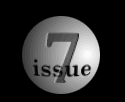All of these ads -- portraying children in schools and homes outfitted with expensive computers, scanners, cellular telephones, satellites, and high-speed connections -- raise the specter of the knowledge gap, a growing chasm between the technological "haves" and "have-nots." Given the broad claims of other ads, it is not surprising to find advertisements that assure the Internet will overcome even differences in social class. Two ads by Oracle, a computer company featuring less expensive network computers that carry little software but require an Internet connection, respond to urban-suburban inequality in America, and First World-Third World inequality on a global scale.
 The first ad, scheduled during high-profile programs such as the 1997 World Series, is the tale of two cities and two boys. The first boy lives in an airy, picturesque suburban home with a large porch and flowering trees. The second boy lives in a dingy brick urban high-rise apartment in a neighborhood of traffic noise. The male voice-over says "There’s no question that computers open up entirely new worlds. But, (cut to shots of second boy) what about children who live in a world that can’t afford personal computers. Fortunately, as of today, we’ll never have to ask that question again (cut to text: Introducing Network Computers. Starting at $299.)." By this point, the two boys are smiling as they click away on their keyboards and communicate as animated dots in a chat room. The narrator concludes "Networked computers allow everyone to join the information age, and we’d like to say welcome."
The first ad, scheduled during high-profile programs such as the 1997 World Series, is the tale of two cities and two boys. The first boy lives in an airy, picturesque suburban home with a large porch and flowering trees. The second boy lives in a dingy brick urban high-rise apartment in a neighborhood of traffic noise. The male voice-over says "There’s no question that computers open up entirely new worlds. But, (cut to shots of second boy) what about children who live in a world that can’t afford personal computers. Fortunately, as of today, we’ll never have to ask that question again (cut to text: Introducing Network Computers. Starting at $299.)." By this point, the two boys are smiling as they click away on their keyboards and communicate as animated dots in a chat room. The narrator concludes "Networked computers allow everyone to join the information age, and we’d like to say welcome."
 The second Oracle ad, which made an auspicious debut during the 1998 Super Bowl, purports to change the world with a new kind of revolution. The ad is laden with images of Southeast Asia, particularly Cambodia and young people with the identifying scarves of the Khmer Rouge revolutionaries. Other "revolutionary" images such as Soviet-style troops and leaders are thrown in for added effect. The male voice-over says "This revolution will be about knowledge and access (cut to shot of a young black male in a stocking cap on a graffiti-sprayed urban basketball court), about progress and opportunity." The narrator later asks "Where do we come in? We make the software that manages information, that will enable anyone, anywhere, to sit at the seat of knowledge." The final shot cuts from an ancient Cambodian temple to a red wooden school chair on a platform, streaked with golden light. The selection of the Khmer Rouge as the featured revolutionaries for this ad is strategic, since the Khmer Rouge had so many child soldiers who, in another revolution, could be typing away on networked computers. The ad seems to be implying that their "swords" can be turned into plowshares -- or shares in Oracle software.
The second Oracle ad, which made an auspicious debut during the 1998 Super Bowl, purports to change the world with a new kind of revolution. The ad is laden with images of Southeast Asia, particularly Cambodia and young people with the identifying scarves of the Khmer Rouge revolutionaries. Other "revolutionary" images such as Soviet-style troops and leaders are thrown in for added effect. The male voice-over says "This revolution will be about knowledge and access (cut to shot of a young black male in a stocking cap on a graffiti-sprayed urban basketball court), about progress and opportunity." The narrator later asks "Where do we come in? We make the software that manages information, that will enable anyone, anywhere, to sit at the seat of knowledge." The final shot cuts from an ancient Cambodian temple to a red wooden school chair on a platform, streaked with golden light. The selection of the Khmer Rouge as the featured revolutionaries for this ad is strategic, since the Khmer Rouge had so many child soldiers who, in another revolution, could be typing away on networked computers. The ad seems to be implying that their "swords" can be turned into plowshares -- or shares in Oracle software.


